STUDY SHOWS MOST KOREANS DON'T CARRY ANTIBODIES
입력 2020.09.15 (15:16)
수정 2020.09.15 (16:47)
읽어주기 기능은 크롬기반의
브라우저에서만 사용하실 수 있습니다.
[Anchor Lead]
Once an individual is infected with COVID-19, the patient eventually develop antibodies in their body, which help neutralize the virus. However, health authorities conducted a study on some 1,400 South Koreans and found that only one of them possessed antibodies. The results indicate that few South Koreans have immunity to the novel virus.
[Pkg]
Recovered Covid-19 patients usually develop antibodies, which help neutralize the virus. A study was conducted to find how many South Korean have such antibodies. According to the study on some 1,400 subjects, only one was detected
meaning an antibody rate of only 0.07 percent. The figure is quite low, compared to foreign cities hit hard by the pandemic. Wuhan recorded 3.2 percent, London 17 percent and New York nearly 15 percent. Therefore, it seems South Korea is unlikely to achieve herd immunity, which is when over 60 percent of the population becomes immune to a disease helping to end an epidemic.
[Soundbite] KIM WOO-JOO(PROF. KOREA UNIV. GURO HOSPITAL) : "It is predicted that the coronavirus outbreak will wane when herd immunity is achieved with 60 or 70 percent of the population developing immunity. But there is still a long way to go."
The study however does indicate some promising points, namely that there are few infections that remain unidentified.
[Soundbite] KIM TAK(PROF. SOONCHUNHYANG UNIV. BUCHEON HOSPITAL) : "Before the mid-August resurgence, there was no difference between the numbers of actual infections and identified infections."
As the second of its kind, the latest study was conducted from June 10 to August 13 in Daegu and 12 other cities and provinces. It used blood serums collected in a nationwide nutrition survey. But the study has limitations, as it was carried out when the nation was reporting a daily average of 44 new cases - before the mid-August resurgence.
[Soundbite] JUNG EUN-KYEONG(CENTRAL DISEASE CONTROL HQs) : "The study has limits when explaining the current situation. The antibody rate is lower than in other countries, since there was a drop in local infections between June and early August."
In the first study, the antibody prevalence rate stood at 0.03 percent. Officials plan to conduct such studies every two months in order to produce more representative results.
Once an individual is infected with COVID-19, the patient eventually develop antibodies in their body, which help neutralize the virus. However, health authorities conducted a study on some 1,400 South Koreans and found that only one of them possessed antibodies. The results indicate that few South Koreans have immunity to the novel virus.
[Pkg]
Recovered Covid-19 patients usually develop antibodies, which help neutralize the virus. A study was conducted to find how many South Korean have such antibodies. According to the study on some 1,400 subjects, only one was detected
meaning an antibody rate of only 0.07 percent. The figure is quite low, compared to foreign cities hit hard by the pandemic. Wuhan recorded 3.2 percent, London 17 percent and New York nearly 15 percent. Therefore, it seems South Korea is unlikely to achieve herd immunity, which is when over 60 percent of the population becomes immune to a disease helping to end an epidemic.
[Soundbite] KIM WOO-JOO(PROF. KOREA UNIV. GURO HOSPITAL) : "It is predicted that the coronavirus outbreak will wane when herd immunity is achieved with 60 or 70 percent of the population developing immunity. But there is still a long way to go."
The study however does indicate some promising points, namely that there are few infections that remain unidentified.
[Soundbite] KIM TAK(PROF. SOONCHUNHYANG UNIV. BUCHEON HOSPITAL) : "Before the mid-August resurgence, there was no difference between the numbers of actual infections and identified infections."
As the second of its kind, the latest study was conducted from June 10 to August 13 in Daegu and 12 other cities and provinces. It used blood serums collected in a nationwide nutrition survey. But the study has limitations, as it was carried out when the nation was reporting a daily average of 44 new cases - before the mid-August resurgence.
[Soundbite] JUNG EUN-KYEONG(CENTRAL DISEASE CONTROL HQs) : "The study has limits when explaining the current situation. The antibody rate is lower than in other countries, since there was a drop in local infections between June and early August."
In the first study, the antibody prevalence rate stood at 0.03 percent. Officials plan to conduct such studies every two months in order to produce more representative results.
■ 제보하기
▷ 카카오톡 : 'KBS제보' 검색, 채널 추가
▷ 전화 : 02-781-1234, 4444
▷ 이메일 : kbs1234@kbs.co.kr
▷ 유튜브, 네이버, 카카오에서도 KBS뉴스를 구독해주세요!
- STUDY SHOWS MOST KOREANS DON'T CARRY ANTIBODIES
-
- 입력 2020-09-15 15:16:42
- 수정2020-09-15 16:47:55
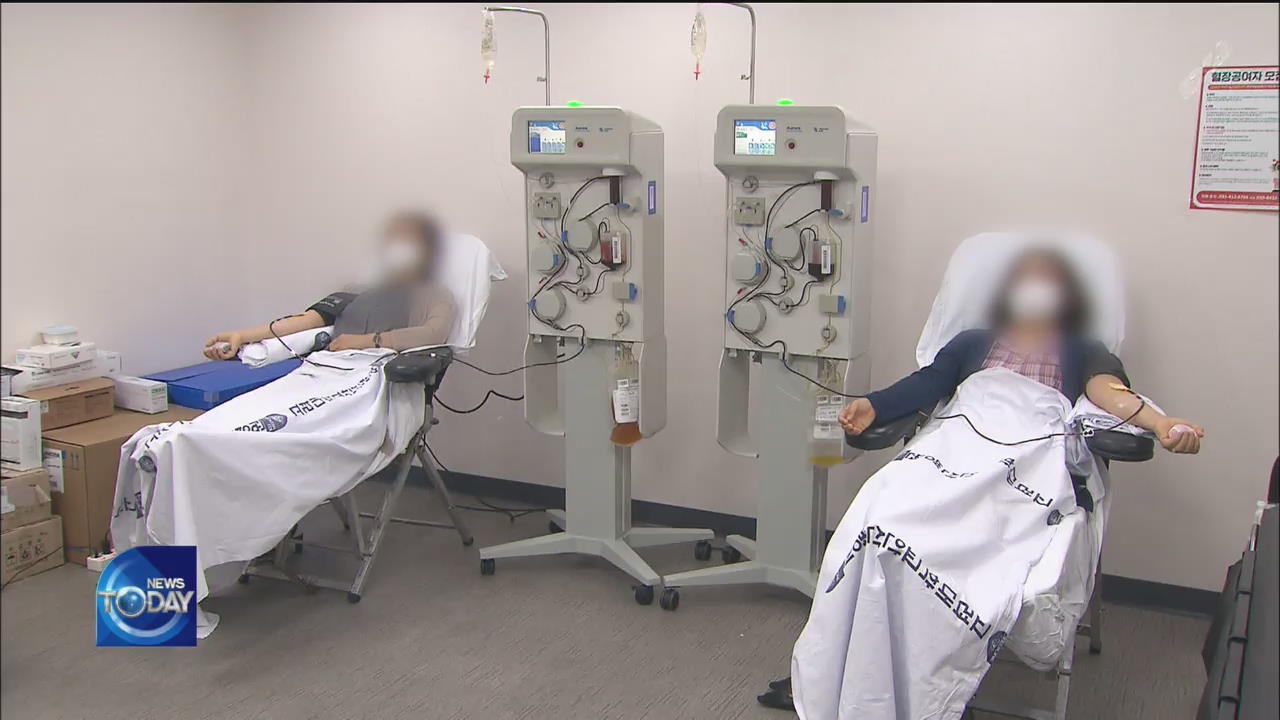
[Anchor Lead]
Once an individual is infected with COVID-19, the patient eventually develop antibodies in their body, which help neutralize the virus. However, health authorities conducted a study on some 1,400 South Koreans and found that only one of them possessed antibodies. The results indicate that few South Koreans have immunity to the novel virus.
[Pkg]
Recovered Covid-19 patients usually develop antibodies, which help neutralize the virus. A study was conducted to find how many South Korean have such antibodies. According to the study on some 1,400 subjects, only one was detected
meaning an antibody rate of only 0.07 percent. The figure is quite low, compared to foreign cities hit hard by the pandemic. Wuhan recorded 3.2 percent, London 17 percent and New York nearly 15 percent. Therefore, it seems South Korea is unlikely to achieve herd immunity, which is when over 60 percent of the population becomes immune to a disease helping to end an epidemic.
[Soundbite] KIM WOO-JOO(PROF. KOREA UNIV. GURO HOSPITAL) : "It is predicted that the coronavirus outbreak will wane when herd immunity is achieved with 60 or 70 percent of the population developing immunity. But there is still a long way to go."
The study however does indicate some promising points, namely that there are few infections that remain unidentified.
[Soundbite] KIM TAK(PROF. SOONCHUNHYANG UNIV. BUCHEON HOSPITAL) : "Before the mid-August resurgence, there was no difference between the numbers of actual infections and identified infections."
As the second of its kind, the latest study was conducted from June 10 to August 13 in Daegu and 12 other cities and provinces. It used blood serums collected in a nationwide nutrition survey. But the study has limitations, as it was carried out when the nation was reporting a daily average of 44 new cases - before the mid-August resurgence.
[Soundbite] JUNG EUN-KYEONG(CENTRAL DISEASE CONTROL HQs) : "The study has limits when explaining the current situation. The antibody rate is lower than in other countries, since there was a drop in local infections between June and early August."
In the first study, the antibody prevalence rate stood at 0.03 percent. Officials plan to conduct such studies every two months in order to produce more representative results.
Once an individual is infected with COVID-19, the patient eventually develop antibodies in their body, which help neutralize the virus. However, health authorities conducted a study on some 1,400 South Koreans and found that only one of them possessed antibodies. The results indicate that few South Koreans have immunity to the novel virus.
[Pkg]
Recovered Covid-19 patients usually develop antibodies, which help neutralize the virus. A study was conducted to find how many South Korean have such antibodies. According to the study on some 1,400 subjects, only one was detected
meaning an antibody rate of only 0.07 percent. The figure is quite low, compared to foreign cities hit hard by the pandemic. Wuhan recorded 3.2 percent, London 17 percent and New York nearly 15 percent. Therefore, it seems South Korea is unlikely to achieve herd immunity, which is when over 60 percent of the population becomes immune to a disease helping to end an epidemic.
[Soundbite] KIM WOO-JOO(PROF. KOREA UNIV. GURO HOSPITAL) : "It is predicted that the coronavirus outbreak will wane when herd immunity is achieved with 60 or 70 percent of the population developing immunity. But there is still a long way to go."
The study however does indicate some promising points, namely that there are few infections that remain unidentified.
[Soundbite] KIM TAK(PROF. SOONCHUNHYANG UNIV. BUCHEON HOSPITAL) : "Before the mid-August resurgence, there was no difference between the numbers of actual infections and identified infections."
As the second of its kind, the latest study was conducted from June 10 to August 13 in Daegu and 12 other cities and provinces. It used blood serums collected in a nationwide nutrition survey. But the study has limitations, as it was carried out when the nation was reporting a daily average of 44 new cases - before the mid-August resurgence.
[Soundbite] JUNG EUN-KYEONG(CENTRAL DISEASE CONTROL HQs) : "The study has limits when explaining the current situation. The antibody rate is lower than in other countries, since there was a drop in local infections between June and early August."
In the first study, the antibody prevalence rate stood at 0.03 percent. Officials plan to conduct such studies every two months in order to produce more representative results.
이 기사가 좋으셨다면
-
좋아요
0
-
응원해요
0
-
후속 원해요
0










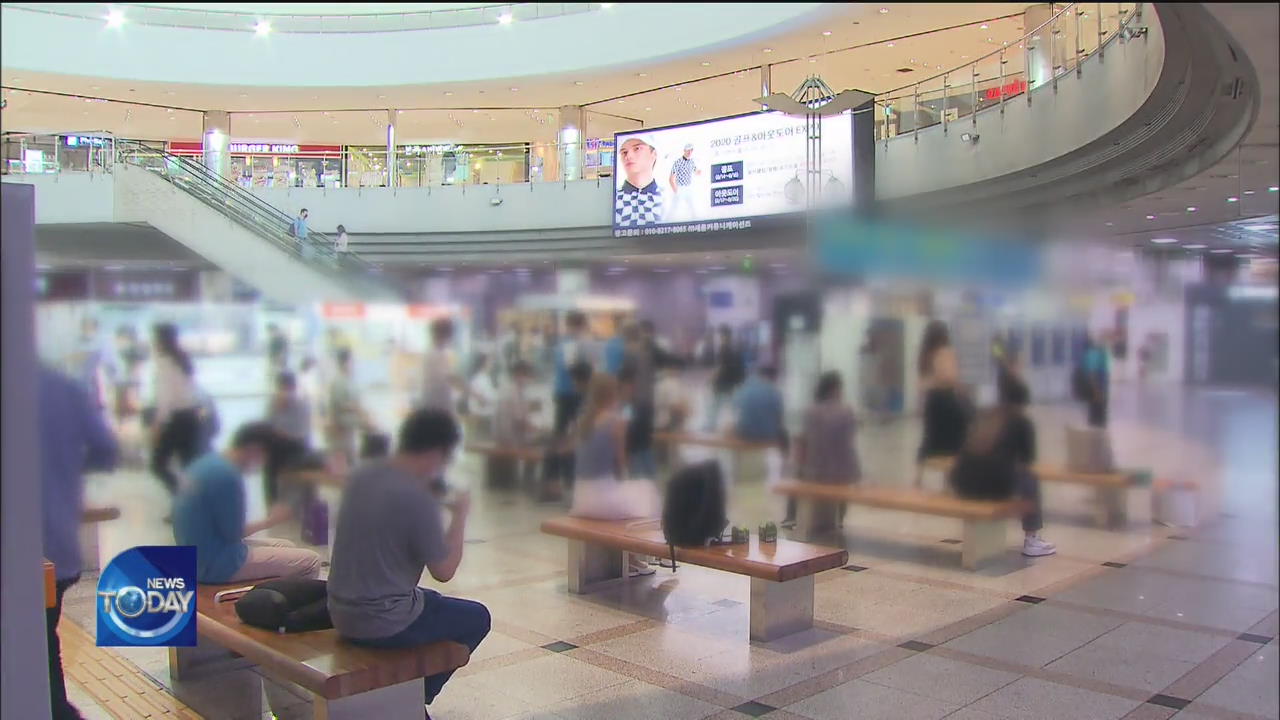
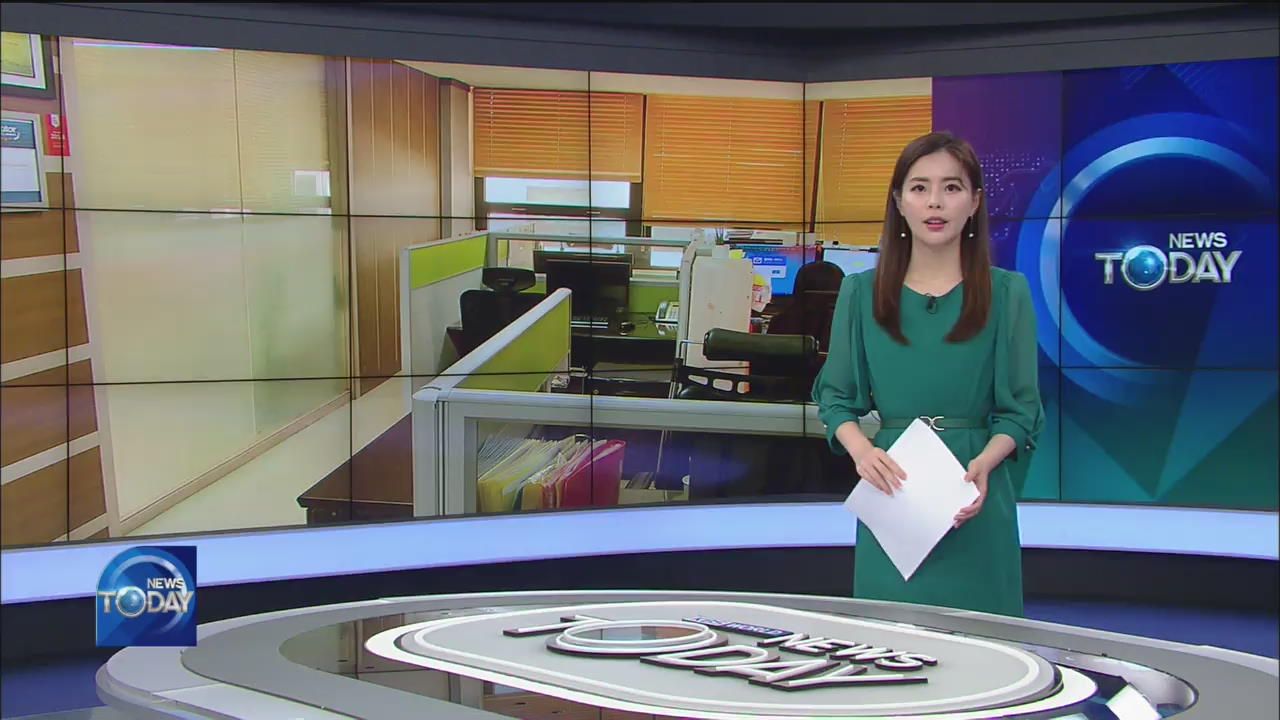

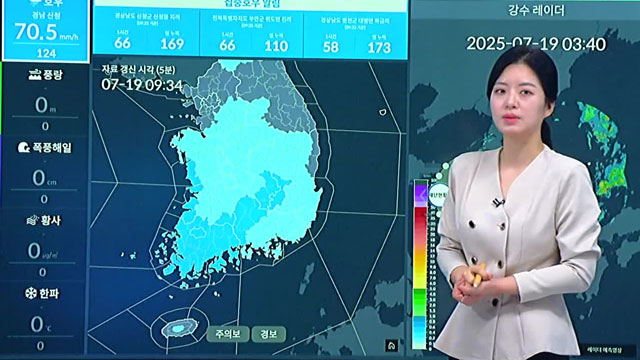
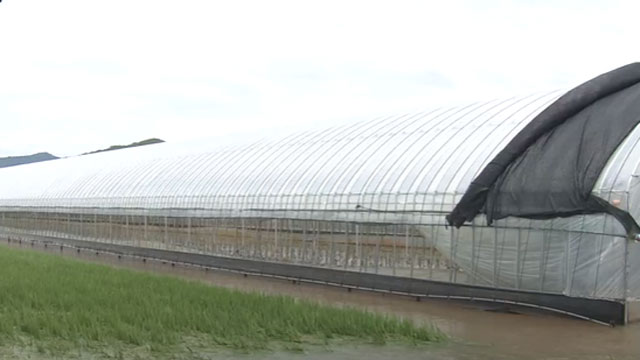
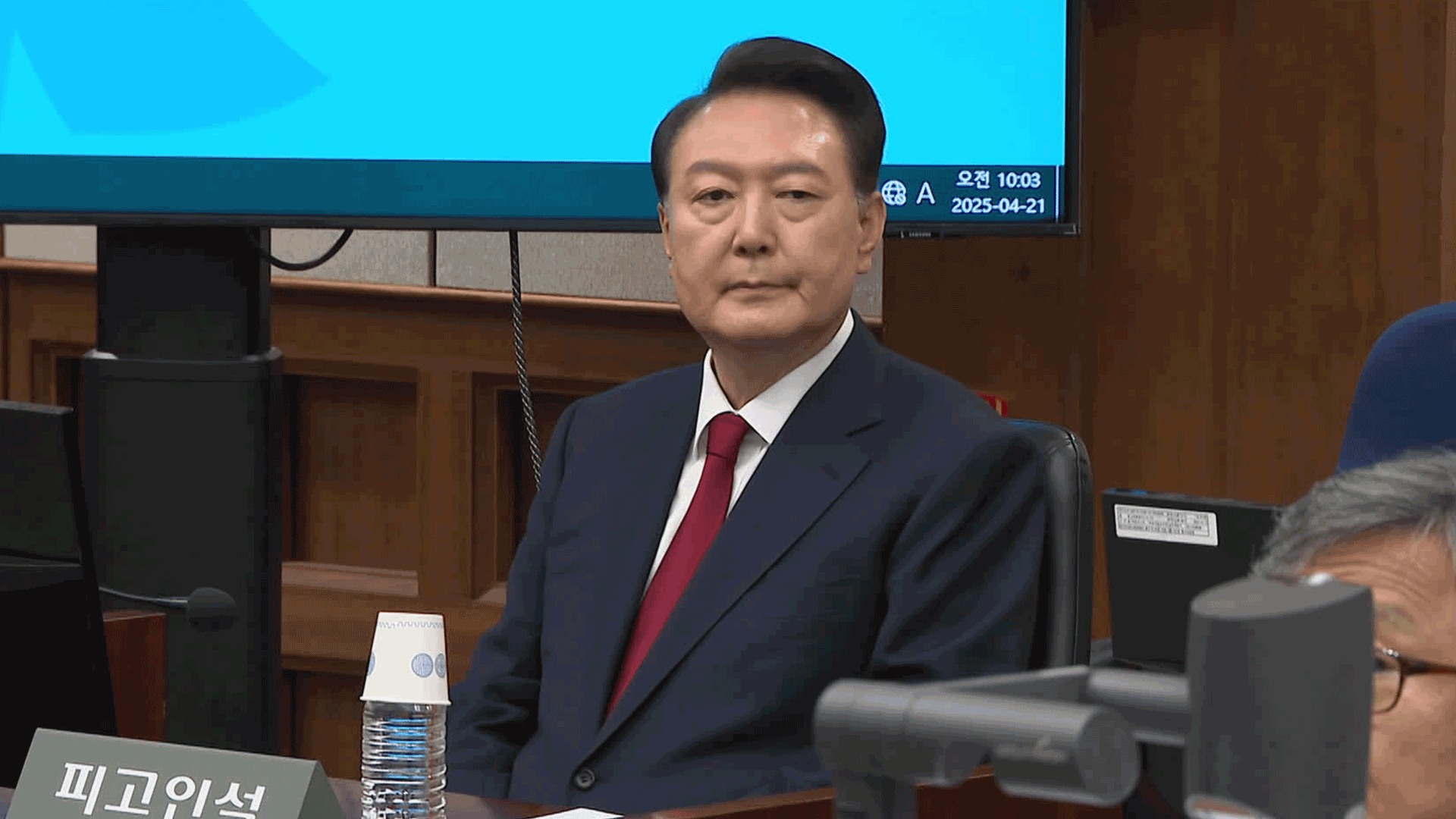

이 기사에 대한 의견을 남겨주세요.